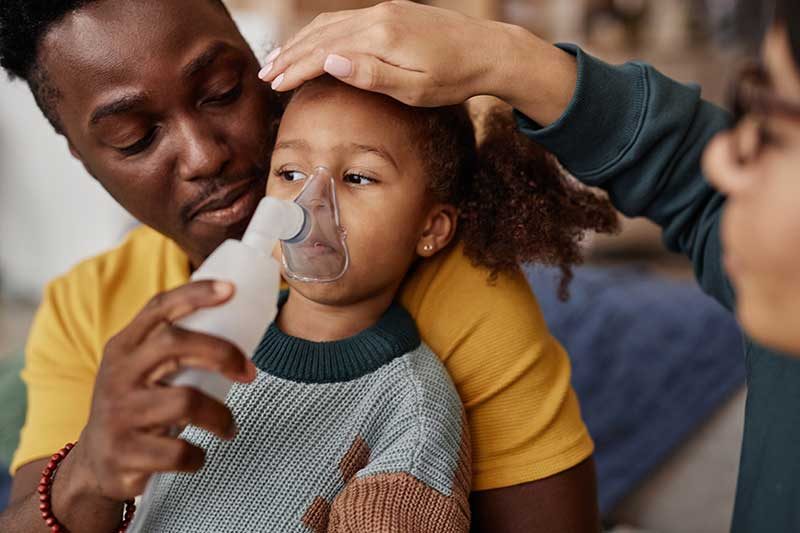Asthma is one of the most prevalent chronic disorders in children, affecting their health, everyday activities, and quality of life. Early diagnosis and treatment are critical for managing symptoms and preventing severe asthma episodes. This blog post addresses how to recognize the early signs of asthma in young children, which can be subtle and easy to miss.
Understanding Asthma in Children
Asthma in children is an inflammatory condition of the airways that causes difficulty breathing. While it can occur at any age, many children exhibit symptoms before the age of five. Recognizing these warning signs early can lead to timely intervention, which can dramatically enhance a child’s health results.
Key Early Signs of Asthma
- Frequent coughing: Coughing, especially at night, can interfere with the child’s ability to sleep soundly. Coughing that intensifies with viral infections or occurs while laughing or crying is a warning sign.
- Wheezing: Listen for a whistling sound when your child breaths, especially on exhale. Wheezing is a typical indication of asthma. However, not all children who wheeze have asthma, therefore it’s critical to note the frequency and circumstances under which wheezing occurs.
- Difficulty Breathing: If your kid frequently struggles to breathe or if their breathing becomes faster or more difficult than usual, particularly during strenuous activities or play, this could be an early indicator of asthma.
- Chest Tightness or Pain: Young children may not be able to verbalize this symptom adequately, although they may say their chest “hurts” or rub it to imply pain.
- Retractions: Look for symptoms of difficulty breathing, such as the skin sucking in around the ribs or neck during respiration. This is known as retraction, and it signals that the youngster is trying harder to breathe.
When to See a Doctor?
If you observe any of the symptoms listed above, especially if they occur frequently or in patterns (for example, always at night or after playing), you should see a pediatrician. Early diagnosis improves asthma management.
Tips for Parents
- Keep a symptom diary. Keeping track of your symptoms can assist your doctor in making an accurate diagnosis. Take note of when the symptoms appeared, how severe they were, and what your child was doing at the time.
- Take note of the family history. Asthma can be inherited, so tell your doctor if you have a family history of it.
- Be wary of triggers. Common asthma triggers include cold air, exertion, allergens such as pet hair and pollen, and respiratory illnesses.
Early detection of asthma in children can result in better disease management and control, lowering the risk of severe asthma attacks and enhancing overall quality of life. By examining your kid for the main signs and symptoms listed above and contacting with a healthcare expert for a correct diagnosis and management plan, you can help ensure your child lives a healthy, active life despite having asthma.
